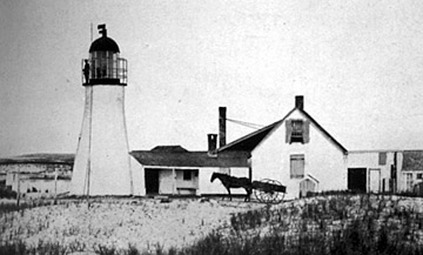Don't miss this series! I absolutely loved this story and was so involved in it that I couldn't put it down nearing the final chapters. The discussion questions included in the back are great to think on. The characters interact so well with conversation and care for each other. Learning to trust is a big issue that is surmounted, with the past benefiting the present. Kelly Irvin has written a today story so valuable to receive.
A new family arrives at Beeville; widower Levi Byler and his six sons and three daughters. Levi and his two older sons are skilled in saddle making and training horses. I enjoyed learning about saddle making; the different layers and measuring. The story opens as the Bylers arrive at school with the younger children. There are two other children who have also arrived. Alone.
A lesson learned in not being a stumbling block, able to help another. Hearts are healed as they wait upon the Lord for direction. I think this each time I finish reading a story in this series, but I really, really liked this one! An encouragement, not judging, but upholding another, benefiting from righting previous curves detoured near the path. This story could be enjoyed by any age group.
The story is so well-written ~ I liked getting to know the characters more and felt a part of their day as they interacted. There is action and changes that require growth and understanding. Respect and honor become vital. A life well-spent.
~ Chapter 1. You will want to read more.
Chapter 1
Alone at last. Rebekah Lantz tugged the creaking shed door shut and leaned against it. The
folded piece of paper from her sister Leila weighed heavy as a stone in her hand. When had
she
managed to tuck it into the two-seater Rebekah drove with Susan to and from the school five
days a week? Did she slip in while Rebekah was helping Susan by listening to the younger
scholars read aloud? Surely not. Leila had a baby daughter to think about now and a husband.
She couldn’t be roaming the countryside delivering notes.
The fact that she had done just that made Rebekah’s
stomach rock. Guilt swirled there, mixing with a swelling ache to see her sister and a baby niece
who would see her
aenti as a stranger. A Plain woman such as herself should
forgive. No matter how much Leila’s decision to leave hurt. No matter how it left Rebekah with little chance
of finding love herself among the young men who looked at her and knew exactly what Leila had
done.
Just
because Leila had given up everything to follow Jesse into the
Englisch world didn’t
mean Rebekah would leave too. She longed to scream out those words at the next singing. Put
them to music. Write her own song. Still, it wouldn’t change the look on the faces of those boys
she’d known her entire life. Deer caught in the headlights of an Englisch truck barreling toward
them on the highway.
She had to open the note, read it. Its weight seemed to increase as each second
ticked by. The cracks in the weathered boards of the shed allowed afternoon sun to filter through in stripes like bars. The April sun was warm, as if reminding Rebekah Texas didn’t wait around
for summer like the northern states did. Her eyes adjusted to the dusky interior after a few
seconds. The smell of mold, decaying wood, and dirt floated in the air. Old egg crates, a broken
desk, a stack of chairs, a wooden door with white peeling paint filled the small room.
She wasn’t
a coward.
Swallowing against the knot of apprehension that always choked her when she did
something of which her
mudder
would not approve, Rebekah unfolded the single sheet of
notebook paper and peered at Leila’s neat block writing.
Dear schweschder,
Hope you are well. We must meet. I need to talk to you face-to-face. Come to where the
school path meets the road Friday at lunch. I’ll be driving the green VW Bug. Can you believe I
drive? Give Hazel a kiss for me.
Love,
Leila
Inhaling the ripe scents that reminded her of how everything returned to the earth in the
end,
Rebekah reread the note a second time. Leila skipped along in life with nary a thought for
how her actions affected others. Abdicating her family. Or inviting Rebekah to a
meeting that would cause her great trouble if Mudder or Mordecai found out.
Rebekah’s job as an aide to teacher Susan King wasn’t much, but it was all she had. She
would never be allowed to get a job in town. Every day since since
that Christmas Eve two years ago, Mudder and Mordecai had watched Rebekah, never letting her go far from their sight, as if
waiting for her to take flight too.
Mudder blamed Leila’s exposure to the Englisch world while working at the day care in
town for all her actions. Not love. For surely it was love that made a person do these strange, inexplicable things. Rebekah wouldn’t know. How could she when the
boys avoided her like poison ivy? At nineteen, Rebekah had no special friend and no chance of having one.
Pressing the note to her chest, she closed eyes that burned with tears she refused to shed.
In the two years since Leila had left, Rebekah had never seen her sister or the baby Grace, now ten months old. Why now? And with such short
notice? Plenty of time to forgive and forget, as she was called to do. Yet here she stood with pain
and anger barricaded together behind the walls of a hardened heart.
She had to see Leila. If for no other reason than to say those words.
Saying
them was the first step in letting the past go. Leastways, that was what the bishop
would say.
A sound, like a muffled sneeze, broke the silence. Rebekah jumped and dropped the note.
The one place she’d thought to be alone.
“Hello?”
Nothing.
Apprehension filled her lungs, making it hard to breathe. Her heart pounded. Rebekah scooped up the note and took two steps back. She put her
shaking hand on a broken desk that leaned against the wall. “Who’s there?”
Something or someone scuttled along the far wall behind the stack of egg crates. Rebekah
took a step toward the door. “I know you’re there. I’ll go outside and you can come out. I won’t
hurt you.”
Such bravado.
What if a prisoner had escaped from the prison near Beeville again? Memories of her
brother-in-law Phineas’s bruised face and bloodied arm spun through her mind’s eye. Phineas and Deborah had escaped and the prisoner from the McConnell Unit had been captured, but not
before damage had been done.
She whirled, jerked open the door, and stumbled into the fresh air and light.
A young girl shot past her, dragging a little boy by the hand. The boy, dressed in faded
blue jeans and a gray T-shirt that might have been white at one time, stumbled and
fell to his
knees. A filthy, bedraggled Mickey Mouse backpack weighed him down. The girl, who looked
eleven or twelve, paused and jerked him to his feet. They were both all bones and no flesh, all
angles and points. Their faces were dirty, and their dark hair matted to their heads. Tears
streaked the boy’s face.
“Wait, wait, who are you?” Rebekah hurled herself after them. The girl sped up, headed
for the stand of live oaks, hackberries, and junipers at the edge of the school yard. “Stop! We
have food.
Comida.”
The girl halted. She swiveled and stared back at Rebekah, the expression on her brown
face a mixture of hope and suspicion. Her arm went around the boy, who looked about
Rebekah’s little sister Hazel’s age, maybe five or six. His almond-shaped eyes were huge in his
thin face.
“
¿Comida?”
Rebekah had studied Spanish in an old textbook she’d found in a secondhand bookstore
for almost three years now, in hopes of one day being allowed to cross into Mexico when the
older folks made their trips to Progreso to
the dentist or to buy medicines. She knew what the
words were but had no idea if she was pronouncing them correctly. “Food.
Co . . . mi . . . da.
Are you hungry?”
The girl nodded hard.
“
Mi hermano tiene hambre.”
They were brother and sister. Who they were and why they were in the district’s
schoolhouse shed didn’t matter as much to Rebekah as the idea that children were going without
food. She pointed to them, then the schoolhouse, and put her hand on her chest. “You come
inside with me.”
The boy began to back away, dragging his backpack with him. He shook his head, fear
etched across his elfin features.
“You want me to bring the food to you?”
The girl tugged at her brother. “
Sí.”
“No one will hurt you, I promise. What’s your name?
Nombre?”
The girl cocked her
head toward the boy, who pressed his face against her shirt. “Him
Diego.” She thumped on her chest. “Lupe.”
“I’m Rebekah.” She tapped her chest with her index finger. “Wait here. I’ll be back.
Don’t go anywhere. No one will bother you out here.”
She dashed
across the yard, hopped over the two steps that led to the small porch, and
tugged open the door. Inside, she skidded to a stop. The first graders were at the front of the
room, reading aloud to Susan. The middle grades were writing essays while the older
boys and
girls graded the younger children’s arithmetic tests.
She sidled over to where Susan stood, arms
crossed, a patient smile plastered on her plump face. “There you are. You said you were going to
get your lunch box from the buggy. I thought maybe you decided teaching wasn’t for you and
went home.” Susan chuckled and patted Mary on the shoulder. “Good job. Molly, you’re next.”
“I need to tell you something.” Rebekah leaned in and whispered, not wanting to get the
entire school riled up. “Over by the stove.”
Susan’s eyebrows arched. “Caleb, come listen to Molly read for me.”
Grinning, Caleb popped from his seat. Knowing her younger brother as she did, Rebekah
assumed he was thrilled to get out of writing his essay, even if it were only for a few moments.
Susan followed her to the long cabinets that lined one wall, providing storage space for
lunch boxes and school supplies. “Something wrong?”
“
Nee. Well, maybe. I don’t know.” Rebekah drummed her fingers on the countertop. She
had a peanut butter and wild-grape jam sandwich in her cooler. Two oatmeal cookies. Some cold fried potatoes. Not enough for two hungry children. “I found two
kinner hiding in the shed.”
Susan swung around toward the rows of desks. Her hand went up, her chubby finger
pointing, and she began to count in a whisper.
“Nee, not ours. I’m not sure where they came from, but—”
“Did you ask them where they came from?” Susan’s schoolteacher voice commanded an
answer. “What were they doing in the shed?”
“Hiding, I guess—”
“Why?”
“I don’t know. They don’t speak much English.”
“They’re from Mexico?”
“I don’t think so. They sounded . . . different.”
“Why did you leave them out there?”
“They were afraid to come in.”
“Why?”
“I don’t know.”
“What
do
you know?”
“Just that they’re scared
and dirty and it doesn’t look like they have anybody to take care
of them and they’re hungry.”
She closed her mouth and waited. Susan rubbed her upturned nose with one finger, her
full lips puckered and forehead wrinkled under a tendril of brown hair that had escaped her
kapp. “We might need to get Mordecai.”
Susan’s brother—Rebekah’s stepfather—would know what to do. And he was the
deacon. Still, it would take thirty minutes round trip in the buggy to get to the farm and back.
And then most likely Mordecai would be in the fields tending his beehives. “Can’t we feed
them
first? They look starved.”
Susan chewed on her lip for a second. “I can’t abide by seeing a child go hungry.”
“Me neither.” Rebekah grabbed her lunch box. “I have one PB&J sandwich.”
Susan scooped up the red cooler that had her name written in black marker on both sides.
“I have venison sausage on a biscuit.”
The reading had stopped sometime during their conversation. Rebekah looked over her
shoulder. Their scholars numbered fifteen and every one of them stared at Susan and her.
“Teacher, what’s going
on?” Of course Caleb, as one of the cheekiest, had the nerve to
voice the question written across all their faces. “Is someone out there?”
“We have visitors.” Susan made it sound like the typical parent visit. They did come by
occasionally, sometimes with
a hot meal or dessert, but runaway children who spoke another
language, that never happened. “Mind your p’s and q’s and keep working.”
Rebekah scurried to the door, the lunch boxes in her hands. Susan followed. “You’re sure
they’re alone? There’s no one waiting in the trees out there?”
“No one I saw. They seem completely alone.”
She waited while Susan opened the door for her. Her aunt looked back at the classroom,
her expression stern. “Sally, you’re in charge. Everyone continues doing exactly what they’re
doing now.”
“Yes, Teacher,” the scholars responded in unison.
Rebekah had no doubt they would do
as they were told. She couldn’t fathom how Susan did it, but her scholars not only obeyed her,
they loved her and wanted to please her. Rebekah scurried across the small porch, her gaze on the steps.
“Lupe! Diego!”
“Nee, I’m Tobias Byler. Who are you?”
Rebekah craned her head. A man sat in a wagon, his face hidden in the shadow of a straw
hat haloed by the midday sun. An older
man, cookie cutter in size and lean build, sat ramrod
straight next to him, mammoth hands resting on bended knees. Behind them, five children of
varying ages filled the back of the wagon.
Rebekah settled the lunch boxes on the ground and
raised her hand to
her forehead to shield her eyes. “There was a boy and girl out here. Did you
see where they went?”
“The little boy and girl ran away when Tobias yelled at them.” A little girl with a lisp,
who held two dolls clutched to her chest, volunteered this startling information in a tone that said
she didn’t approve. She stood and pointed. “They ran into those trees.”
“You yelled at them?” Rebekah knew better than to scold a man, any man, but especially
one she didn’t know. Still, she couldn’t help herself. “They’re
hungry. They’re children.”
Tobias lifted his hat, revealing brown hair over green eyes in a tanned face that held a
bemused expression. He found her outburst funny somehow. He slapped the hat back on his head as if he had all the time in the world to consider her comment. “I just missed running over the
boy when he ran out in front of the wagon. I thought a shout was in order.”
“Tobias.” The other man had the same deep voice and accent that spoke of somewhere
north of the Mason-Dixon Line. “We’re newcomers. Let’s not get off on the wrong foot.”
“But
Daed—”
“We brought the kinner by to see where they’ll start school tomorrow. I know there’s
only a couple of weeks left, but they’re chomping at the bit to meet some of the other kinner
around here.” Tobias’s daed smiled at Susan, who stood next to Rebekah with her hands on her hips.
“I reckon they’re not so excited about school itself, sorry to say. I’m Levi Byler, your new
neighbor. You must be the teacher.”
Why didn’t he think Rebekah was the teacher? She opened her mouth. Susan’s hand
touched her arm. She shut her mouth.
“Pleased to meet you. I'm Susan King and this is Rebekah Lantz.” Susan seemed to have lost her schoolteacher voice. The words
were soft, almost hesitant. She tilted her head as if looking around Levi. “Five of you? That’s a
nice addition
to our numbers. Y’all are welcome to come in and meet the other scholars.”
“What about the boy and the girl—?”
Susan’s glare forced Rebekah to stop.
The children tumbled from the wagon and trotted to the door, introducing themselves to Teacher as they tromped by. Rebekah caught the names
Rueben,
Micah,
Ida,
Nyla, and
Liam
offered in tones that ranged from soft and respectful to downright giggly. Liam, the youngest,
barely whispered his name with a cheeky grin before he scampered up the steps. Susan and Levi
followed.
Tobias hopped from the wagon and then planted himself next to Rebekah. “I’ll help you look.”
He towered over her. Up close he looked even more solid and broad through the chest. Tearing her gaze from his beefy arms, Rebekah took a breath. “Why would you do that?”
“Because it’s obvious you’ll never forgive me if I don’t.”
“We’re called to forgive, no matter what.” Her tone sounded tart in her ears. If he only
knew how hard it was for her to take her own advice. What a hypocrite she was. She worked to
soften her tone. “It would be wrong to hold a grudge.”
“Do you always do what’s right?”
Her hand went to the spot where she’d tucked Leila’s
note inside a torn seam on the
back side of her apron. He asked too many questions and his green eyes seemed to see too much.
“I try.”
“Me too.”
His shadow made him seem ten feet tall. Rebekah’s neck hurt from looking up at him. “I
don’t think we should go
off on our own.”
“They’re only children. You’ll be safe with me.”
The faint sarcasm that tinged his words didn’t make her feel safe.
Just the opposite.
, the third and closing novel in the Amish of Bee County series from Zondervan/HarperCollins. It follows
, and is one of three finalists in the 2016 American Christian Fiction Writers (ACFW) Carol Awards Contest in the romance category.
***Thank you to author Kelly Irvin and to Zondervan/HarperCollins for sending me a copy of
to review. This review was written in my own words. No other compensation was received.***

 If you are looking for a new fall study, individually or for a study group, this would be an excellent choice for women of all ages, single or married. The study contains: the goal worth pursuing, God's character, and becoming like Christ; the cost rooted in surrender and exemplified by obedience; the prize molded by discipline, guarded by discretion, made precious by a gentle and quiet spirit, perfected by purity, and proclaimed by wisdom; the praise portrayed in the life of a godly woman.
If you are looking for a new fall study, individually or for a study group, this would be an excellent choice for women of all ages, single or married. The study contains: the goal worth pursuing, God's character, and becoming like Christ; the cost rooted in surrender and exemplified by obedience; the prize molded by discipline, guarded by discretion, made precious by a gentle and quiet spirit, perfected by purity, and proclaimed by wisdom; the praise portrayed in the life of a godly woman. 
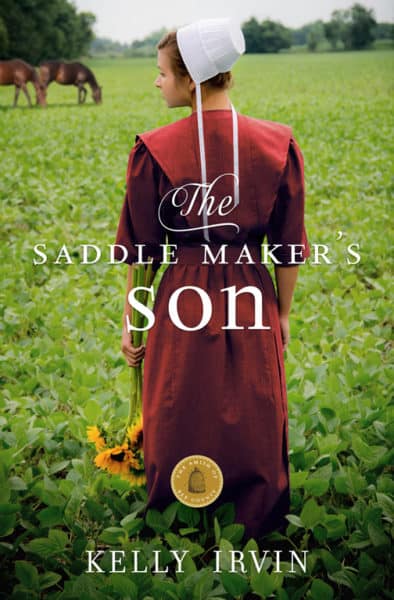


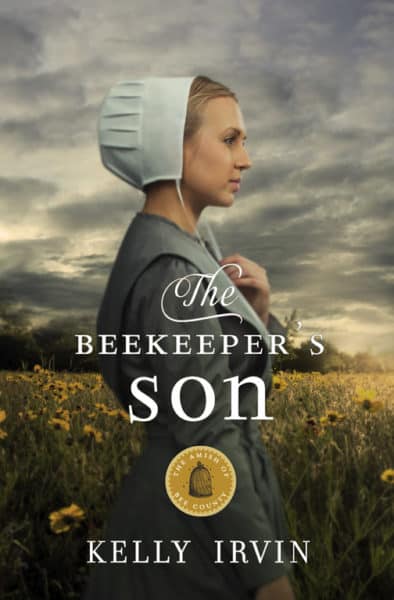
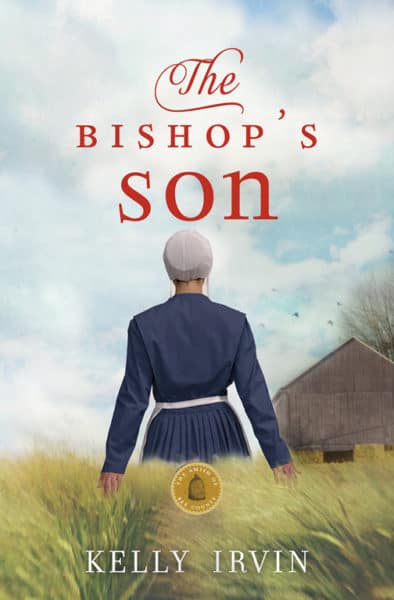
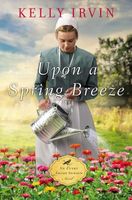




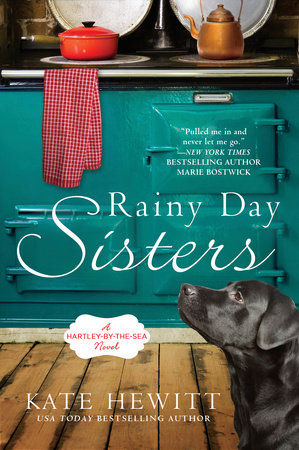



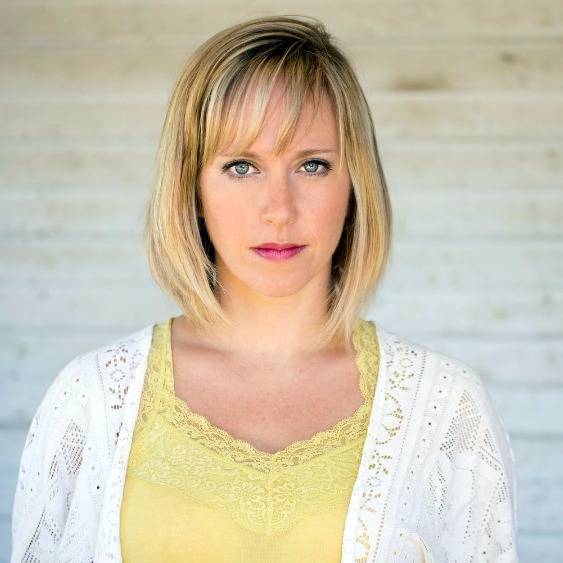








 Meet Katie Kauffman:
Meet Katie Kauffman:



